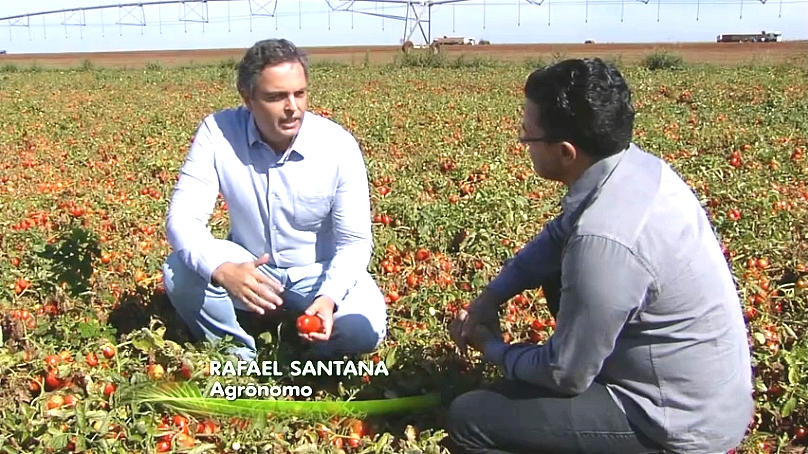Respect for your privacy is our priority
The cookie is a small information file stored in your browser each time you visit our web page.Cookies are useful because they record the history of your activity on our web page. Thus, when you return to the page, it identifies you and configures its content based on your browsing habits, your identity and your preferences.
You may accept cookies or refuse, block or delete cookies, at your convenience. To do this, you can choose from one of the options available on this window or even and if necessary, by configuring your browser.
If you refuse cookies, we can not guarantee the proper functioning of the various features of our web page.
For more information, please read the COOKIES INFORMATION section on our web page.


 This year, the weather was good and productivity per hectare reached a record level. "We are currently at 94 metric tonnes per hectare," explained Rafael Rezende Santana, an agronomist with Abratop, the Brazilian association of operators of the tomato processing industry. According to him, the usual average is approximately 80 mT/ha. The high yields have made a difference to the revenue of growers. Some of them, particularly in the South-West of the State of Goiás, reached productivity levels that are significantly higher (111 mT/ha) than the national average, including on the widest expanses of planted surfaces.
This year, the weather was good and productivity per hectare reached a record level. "We are currently at 94 metric tonnes per hectare," explained Rafael Rezende Santana, an agronomist with Abratop, the Brazilian association of operators of the tomato processing industry. According to him, the usual average is approximately 80 mT/ha. The high yields have made a difference to the revenue of growers. Some of them, particularly in the South-West of the State of Goiás, reached productivity levels that are significantly higher (111 mT/ha) than the national average, including on the widest expanses of planted surfaces.





























